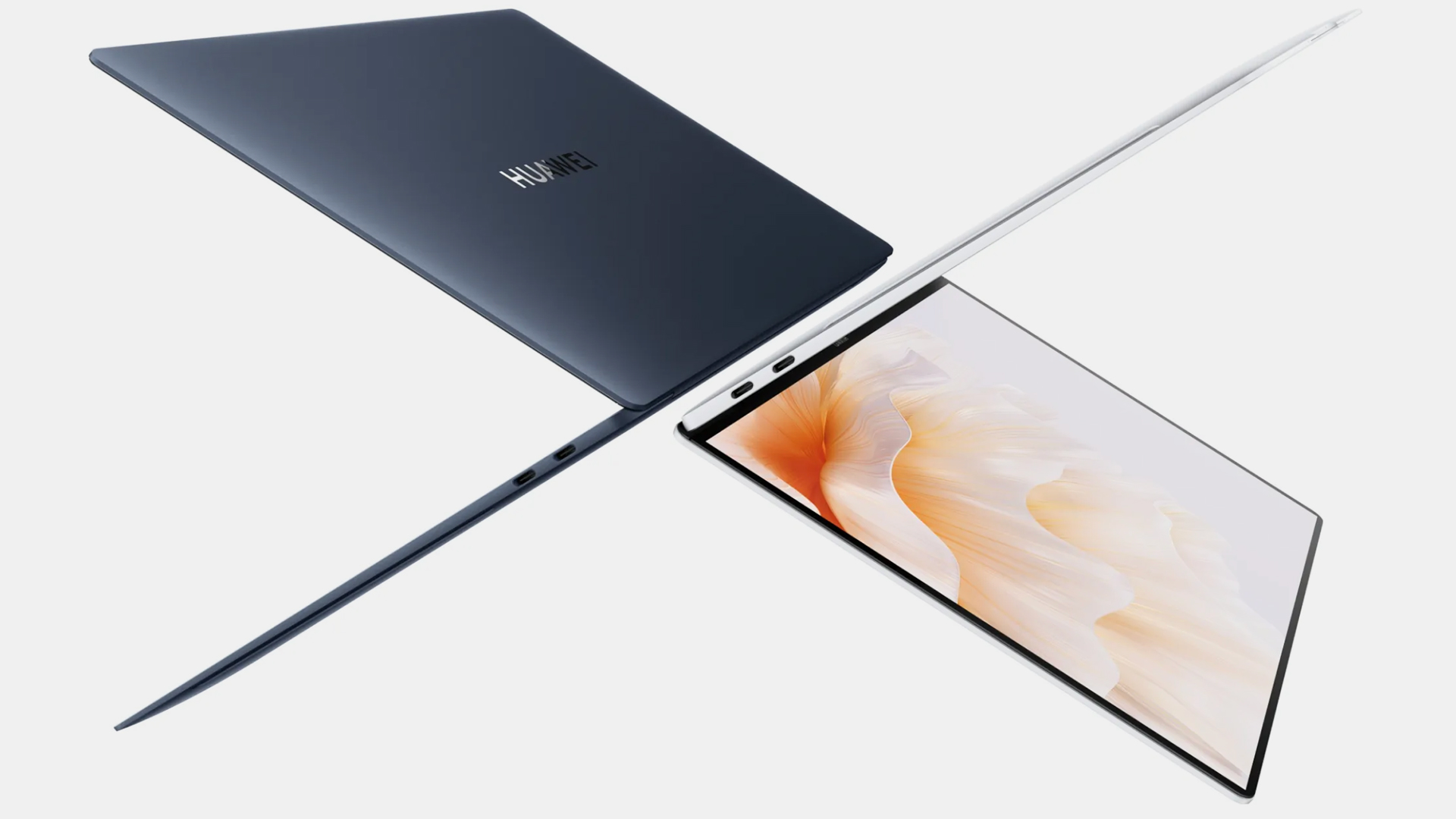U.S. lawmakers annoyed with Huawei's latest laptop with Intel Meteor Lake CPUs
Why did not they bother about Qualcomm's supplies to Huawei?

Republican lawmakers in the U.S. have criticized Joe Biden's government following Huawei's recent launch of the MateBook X Pro based on Intel's Core Ultra 'Meteor Lake' processors, Reuters reports. The product's debut has reignited concerns over the Chinese firm's ongoing technology exports, which have been on a trade restriction list since 2019 for sanctions violations. But there is a catch: Donald Trump's administration has granted Huawei's export license.
The controversy centers around Huawei's continued receipt of high-tech components from U.S. companies, specifically Intel, despite being placed on a blacklist intended to curb its access to such processors. This blacklist mandates that suppliers must secure a specialized and hard-to-obtain license before conducting business with Huawei.
This situation has drawn sharp rebukes from Republican Congressman Michael Gallagher, the chair of the House of Representatives Select Committee on China, who expressed frustration over the continued technological exports to Huawei. Another prominent critic, Republican Congressman Michael McCaul, echoed these sentiments, emphasizing that he was previously assured that the licenses to Huawei would be discontinued, a promise he sees as unfulfilled.
Meanwhile, Intel has been supplying Huawei with processors for its laptops since 2020 under a license granted by the Trump administration, which is expected to expire later this year without renewal.
When it comes to export controls in regards to Huawei (or any other China-based entity), there are at least two goals for the U.S. government to achieve here: preserve Huawei's access to leading-edge American technologies (to halt China's military development) and to halt (or at least slow down) Huawei's economic development so that it could not develop its high-tech might.
While the U.S. government achieves the first goal by severely limiting the performance of processors that can be shipped to China in general and Huawei in particular, it allows shipments of relatively high-performance CPUs (which comply with the regulations) to the People's Republic.
On the one hand, this helps American companies like Intel and Qualcomm (4G versions of processors only, though) to sell their products to high-profile notebook and smartphone maker Huawei. On the other hand, getting premium processors from world-class suppliers like Intel and Qualcomm enables Huawei to make world-class products, such as the latest MateBook X Pro based on Intel's newest Meteor Lake CPUs; this helps improve the company's economic prowess. This economic prowess is used to research and develop microelectronics fab tools that could be used to build fabs that make chips to improve China's military capability.
Get Tom's Hardware's best news and in-depth reviews, straight to your inbox.
While the concern is more than understandable, we can only wonder why Republican lawmakers were not precisely concerned in 2020 about the same Intel and Qualcomm license grant by the Donald Trump administration.

Anton Shilov is a contributing writer at Tom’s Hardware. Over the past couple of decades, he has covered everything from CPUs and GPUs to supercomputers and from modern process technologies and latest fab tools to high-tech industry trends.
-
ThomasKinsley This follows the US strategy of a slow decoupling from China - consistent criticizing of legal, sanctions-compliant activity provides the appearance of wrongdoing so as to justify the decoupling.Reply
There is no doubt that all sides have already accepted decoupling and that is why China is redoubling its efforts to create its own semiconductor industry. I only wonder what happens if China's technology matures enough to export. -
Rhildebrant I believe there is a typo in the following paragraph.Reply
When it comes to export controls in regards to Huawei (or any other China-based entity), there are at least two goals for the U.S. government to achieve here: preserve Huawei's access to leading-edge American technologies (to halt China's military development) and to halt (or at least slow down) Huawei's economic development so that it could not develop its high-tech might.
I assume the sentence is supposed to indicate the goal is to restrict Huawei’s access, not preserve it. -
usertests ReplyWhy did not they bother about Qualcomm's supplies to Huawei?
While I doubt it, maybe the Congress critters instinctively recognize that the Snapdragon X Elite does not matter. -
Shirou Not sure what they're worried about... These are consumer chips for god's sake. Every chip sold is direct profit for the U.S....Reply
Cool technology in the laptop btw, the screen weight and thermal engineering are all pretty amazing from an engineering standpoint. -
Notton Mike Gallagher? He said he's leaving on 2024 April 19th. Is he trying to grand stand now to get hired by some news company as a correspondent?Reply
Also, why are they mad in the first place? Those mobile Intel CPUs can't even do 40 TOPS, and are highly likely to be the worst performing compared to Snapdragon X Elite, and Ryzen 8050.
"While the concern is more than understandable, we can only wonder why Republican lawmakers were not precisely concerned in 2020 about the same Intel and Qualcomm license grant by the Donald Trump administration."
All you have to do is follow the money, and look at political contributions.
Looking at the contributions, it looks like it was Intel and Qualcomm who paid the most to keep their licenses valid.
Huawei seems to be caught in the crossfire, because they have the largest name value.
"Why did not they bother about Qualcomm's supplies to Huawei?"
These are the same bunch of people who are out of touch with how technology works. I doubt they understand how fast Qualcomm chips have gotten since 2020.